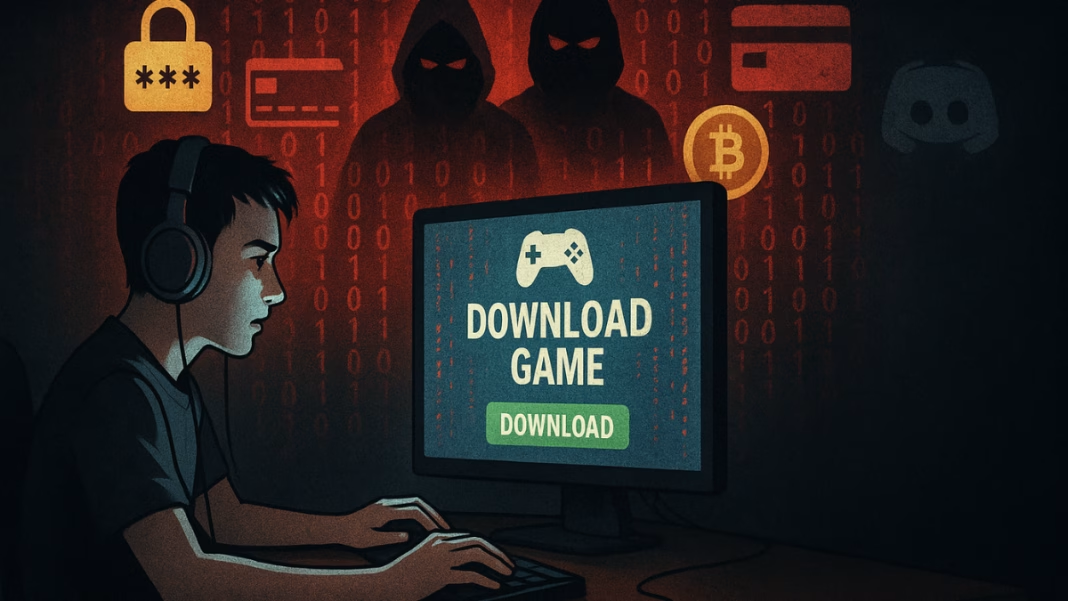Cyber experts from Acronis have uncovered a scary new trick used by hackers to target gamers in the Middle East. These attackers are creating fake online games that look real and exciting. But when people download these games, their devices get infected with dangerous malware—software that steals private and personal information.
Dangerous Malware Hidden in Popular-Looking Games
The online gaming world is growing fast in the Middle East. It’s now worth over $7 billion and is especially popular among young people between the ages of 18 and 35. Countries like Saudi Arabia, Qatar, and Türkiye are among the worst affected by this new cyber threat.
The fake games are given names that sound fun and interesting—like Baruda Quest, Warstorm Fire, and Dire Talon. But these games aren’t real at all. They are made to look like new indie games in beta testing. When gamers try to install them, they actually install malware with names like Leet Stealer, RMC Stealer, and Sniffer Stealer. These are powerful tools that hackers use to steal passwords, credit card details, and even cryptocurrency wallets.
The hackers mainly use community apps like Discord to spread these fake games. Since many gamers trust and use Discord every day, it becomes easy for attackers to trick them. They often pretend to be regular users or game developers, sharing download links in group chats. These links lead to fake websites that look just like official game pages.
Hackers Use Clever Tricks to Fool Even Smart Users
This malware campaign is not like simple scams. It is very well-planned and designed to fool even smart and experienced users. The hackers use stolen images, logos, and names to make their fake websites look real. They even create YouTube videos that act like real game trailers, adding to the lie.
When someone downloads the game, it shows a fake error message. The person thinks the game just didn’t install properly. But behind the scenes, the malware starts working—collecting private information and sending it to the hackers without the user knowing.
No Spies Allowed—Apple’s Private Cloud Compute Redefines AI Privacy Standards
What makes this attack even more dangerous is that many antivirus tools do not catch the malware right away. This gives the hackers more time to use the stolen information for harmful purposes. It could lead to money being stolen, online accounts being hacked, or even personal photos and messages being leaked.
This campaign first started in Brazil and the United States. But it has now spread to many parts of the world, with the Middle East becoming one of the top targets. This is because of the fast-growing gaming culture in the region, especially among young, tech-savvy people.
Simple Tips Can Help Gamers Stay Safe
Acronis experts are warning all gamers to be extra careful. They say people should only download games or updates from trusted websites or official app stores. Gamers should also turn on two-step login (also called multi-factor authentication) wherever possible. This adds an extra layer of security in case someone tries to hack their accounts.
Even if you are smart with technology, these new types of cyberattacks can still trick you. That’s why it’s important to double-check links, avoid downloading games from random Discord chats, and never share personal details with strangers online.
This malware campaign shows how serious cyber threats are becoming—not just for big companies, but for regular people too. Young gamers are especially at risk, as they often share files, game tips, and download links with friends online.
Hackers are now using very sneaky methods to reach people directly in their homes. As online gaming continues to grow, so does the need for better personal cybersecurity.
By staying alert and careful, gamers can protect their information and enjoy their favorite games without falling into traps set by cybercriminals.
